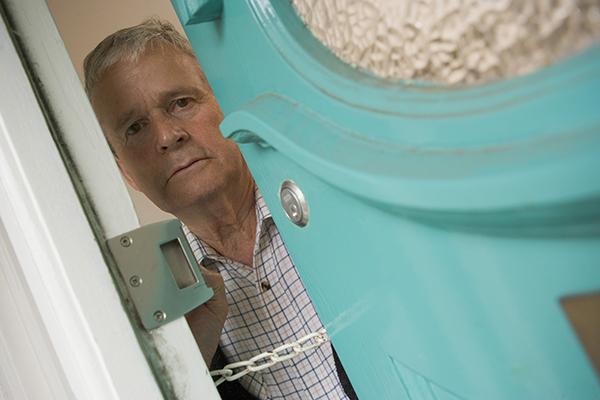Of the many behaviors associated with Alzheimer’s disease, probably one of the most worrying is the propensity for wandering and the potential dangers that could occur if the individual becomes disoriented or lost. Alzheimer’s wandering may occur if the older adult is:
- Scared, confused or overwhelmed
- Looking for someone or something
- Bored
- Attempting to keep a familiar past routine (such as going to work or shopping)
- Tending to a basic need (such as looking for a drink of water or going to the bathroom)
The aim is twofold; to help keep the senior safe, and also to make certain their needs are satisfied to try and prevent the need to wander to begin with. Consider the following safety precautions if an older adult you love is prone to wander:
- Be sure that the residence is equipped with a security system and locks that the individual is unable to master, such as a sliding bolt lock out of his or her range of vision. A number of alarms can be purchased, from something as basic as placing a bell over doorknobs, to highly sensitive pressure mats designed to sound an alarm when stepped upon, to GPS products that may be worn, and many more. It’s also wise to register for the Alzheimer’s Association’s Safe Return Program.
- Camouflage exits by covering up doors with curtains, setting up temporary folding barriers strategically around doorways, or by wallpapering or painting doors to match the surrounding walls. You could also try placing “NO EXIT” signs on doors, which can sometimes dissuade those in the earlier stages of dementia from attempting to exit.
- Another danger for those who wander is the increased risk of falling. Look over each room of the house and address any tripping concerns, such as eliminating throw rugs, extension cords, and any obstructions that could be blocking walkways, installing extra lighting, and placing gates at the top and bottom of stairways.
It is important to remember that by using guidance and direction, wandering is not necessarily a bad thing. Take a walk with each other outside whenever weather allows and your loved one is in the state of mind to be mobile, providing the additional benefit of fresh air, physical exercise, and quality time together.
Although often hard to manage, the dementia care team at Compassionate Care Home Health Services is specially trained to be both watchful and proactive in deterring wandering and to utilize creative techniques to help older adults with dementia remain relaxed and content. Contact the experts in dementia care in Saginaw and nearby areas at 877.308.1212 to learn more!

